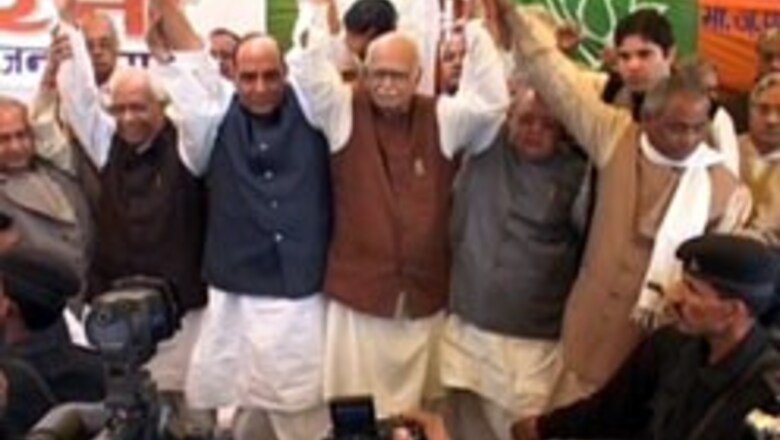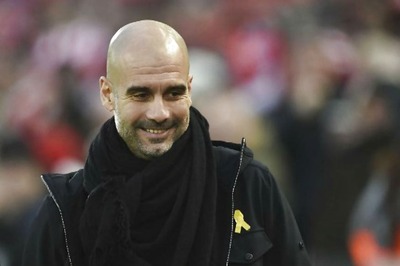
views
New Delhi: The Bharatiya Janata Party (BJP) on Tuesday said it was committed to building the Ram temple in Ayodhya but the party may soon be tested on its statement.
The Justice M S Liberhan Commission probing the 1992 demolition of the Babri Masjid submitted its report to Prime Minister Manmohan Singh on Tuesday--not the best time for the BJP to deal with the controversy again after its defeat in elections.
The commission has allegedly made observations about senior BJP politicians--and some who were in the party during the mosque’s demolition--in its report.
It has examined the role of senior BJP leaders Murli Manohar Joshi and L K Advani in the demolition of the mosque.
The commission has also probed former BJP leader Uma Bharti, Vishwa Hindu Parishad leader Ashok Singhal, who is accused of inciting people to demolish the mosque, and Kalyan Singh, who was the BJP Chief Minister of UP in 1992.
The commission is also likely to comment on who incited kar sevaks on December 6, whether Kalyan Singh fulfilled his duties as Chief Minister and did the Central government fail to protect the mosque.
The BJP welcomed the report, but insisted that it was no apologetic for the Ram Janambhoomi movement.
"There must be a constructive solution to the whole issue as Hindus across the globe want a grand temple be constructed at the disputed site. The BJP also wishes that a temple is constructed there," said party spokesperson Ravi Shankar Prasad in New Delhi.
"All important leaders of BJP appeared before the commission whenever summoned. LK Advani appeared before the commission and was questioned for more than a week BJP Leaders tried to prevent the demolition of the structure," added Prasad.
“I definitely wanted the Ram temple to come up (in Ayodhya) and I definitely wanted that building to come down but not in that manner. But I am not apologetic and I am not going to apologise,” said Bharati, who was the BJP when the mosque was demolished on December 6, 1992 by Hindu groups.
PAGE_BREAK
The Congress alleged the BJP’s reaction proved its guilt. "Excessive protests by the BJP in advance reflects a guilty mind," said party spokesperson Abhishek Singhvi.
The demolition of the mosque triggered widespread communal riots in the country and led to the loss of many lives.
The panel to investigate what led to the demolition of the Babri mosque was to submit its report by March 16, 1993. But it sought repeated extensions to complete its investigation. The last three-month extension was given in March this year.
Justice Liberhan on Tuesday refused to divulge the contents of his report. “I cannot talk about the report at all. It is for the media to judge objectively, collect their facts, draw inferences and attribute,” Liberhan told CNN-IBN.
Communist Party of India leader D Raja also regretted the delay in the report. "Its sad that the commission took so much time. The government should now table the report in parliament as soon as possible and tell the people of this country what actions they plan to initiate," he said.
But there are several unanswered questions:
- Why did it take nearly 17 years for the report to be ready?
- How culpable are the key figures - Lal Krishna Advani, Murli Manohar Joshi, Kalyan Singh, Uma Bharti and the VHP leadership - in the Babri demolition?
- Who exactly provoked kar sevaks, who made those fiery speeches that incited them on December 6, 1992?
- Was L K Advani's rath yatra directly responsible for inciting the kar sevaks?
- Did the then UP Chief Minister Kalyan Singh turn the other way on December 6?
- Did the Narasimha Rao government's delay in reacting contribute to the demolition in any way?



















Comments
0 comment